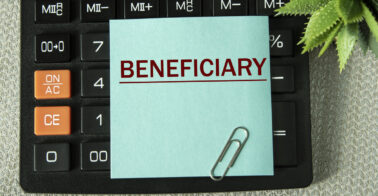Executor and Beneficiary?


Yes, it is possible to serve as an executor for a deceased loved one—and be a beneficiary of some of their assets too. In fact, quite commonly, the executor named when a will is written is also among those designated for inheritance. Here’s a brief overview of what executors and beneficiaries can anticipate.
Executing A Will
When a will is created, someone needs to take responsibility for carrying out the intentions expressed in it. Typically, the appointed person is referred to as an executor, and is usually a close relative or friend of the testator—the individual making the will. Sometimes, depending on the state and circumstances, the term personal representative is used in place of executor. Monteforte Law points out, for example, that in Massachusetts, the term personal representative is now in use. Regardless of the terminology differences across the country, the individual trusted to carry out the terms of a will has a fiduciary obligation to act in the best interests of the estate and all beneficiaries throughout the probate process. Experts at Monteforte Law point out:
Executors are responsible for carrying out the testator’s wishes as outlined in the Will.
…An executor can also be a beneficiary of the Will. It is common for people to have their surviving spouse or children act as the executor of their estate, but you are able to name the executor a beneficiary in your Will. Just because they are named executors, does not mean they can not be entitled to assets of the estate. This decision can be cost-effective if you have a simple estate. Another benefit of having a family member act as the executor of your estate is they are familiar with your wishes. They know you, and they understand how you want your assets divided. If you forget to state where your property goes in your Will, an executor that knows you well is more likely to give those assets to the correct beneficiaries.
Depending on the complexity of the estate involved, it ordinarily takes about 6-12 months for an executor to settle an estate. It’s important for executors to maintain communications with beneficiaries during this time. While there may be anxiety or impatience about receiving designated assets, an executor cannot distribute any assets to any beneficiaries until debts, including taxes, are settled. Unpaid taxes, debts, conflicts among family members or contested wills are examples of what can cause complexities and delays during probate. Experts note “The executor should work diligently to get each beneficiary paid as soon as possible,” but remind us that the probate process takes time and requires diligence. Here, for example, is a snapshot of the protocols for probating a will in Massachusetts:
- A petition is filed with the proper probate court.
- A notice is issued to heirs named in the Will or to statutory heirs if no Will exists.
- A petition is filed for the court to appoint the executor named in the Will or an administrator for the estate if no Will exists.
- The executor or estate administrator conducts an inventory and appraisal of estate assets.
- Any debts held by the estate are paid to rightful creditors.
- Estate assets are sold, if necessary.
- Estate taxes, if applicable, are paid.
- Assets are distributed to heirs.
During probate, it is quite common for courts to require a type of fiduciary bond, often referred to as an executor bond. Colonial Surety’s direct, online process, makes it quick and easy to obtain and e-file an executor bond anytime, from anywhere. Essentially, an executor bond guarantees duties will be carried out in accordance with the law. At Colonial, the steps to obtaining executor, personal representative and other court and fiduciary bonds are quick and easy: get a quote online, fill out the information, and enter the payment method. Instantly print or e-file the bond right from anywhere—even court.
Obtain a Personal Representative Bond Here.
Probate Bound?
Count on Colonial for easy and speedy fiduciary and court bonds of all kinds.
Obtain digital bonds from our online portfolio, then download and e-file them right away—even before leaving court. Our fiduciary bond portfolio includes: administrator, estate, executor, guardian, personal representative, probate, surrogate, trustee, conservator and the list goes on. See for yourself, right here.
Special needs? No sweat: Colonial’s a direct bond writer, so our experts are here to ensure specific bonding requirements across the country are properly met. Our speediest and most convenient service especially for lawyers dealing with Surrogate Court or Probate Court is right here:
The Partnership Account® for Attorneys.
Founded in 1930, Colonial Surety Company is a direct writer of surety bonds and insurance products. Colonial is rated “A Excellent” by A.M. Best Company, U.S. Treasury listed, and licensed for business everywhere in the USA.

